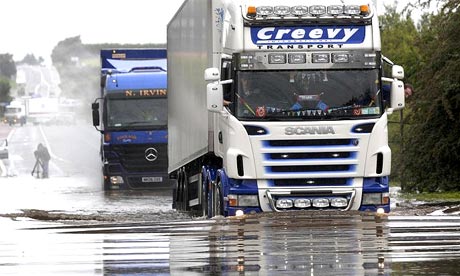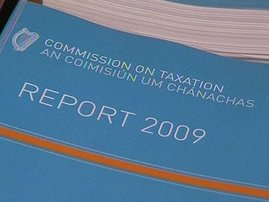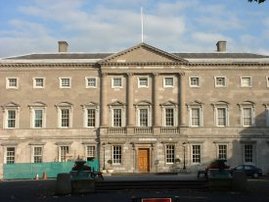Banking Crisis needs Public Inquiry
In his statement before the Joint Committee on Economic Regulatory Affairs on Tuesday, the Governor of the Central Bank, Professor Patrick Honohan argued that an inquiry into recent developments in the banking sector was required. I strongly support the Governor’s position. Professor Honohan also stated he was sure the average discount to be applied to the €77 billion loans acquired by the National Asset Management Agency would be different from the 30% estimate provided in September. We know already that the basis on which we are operating is wrong and will need to be updated. We have been informed by Government spokespersons that it will be necessary to invest further State money in capitalising the banks. We must, therefore, conclude that in analysing the budget this week and last week we were operating with sight unseen, as it were, in terms of what will be the true budgetary position in the coming months. It is vital that the Government confirm and clarify precisely what is in store in terms of further State moneys being invested in the banking system.
I concur with others on the urgent need for a full-blooded inquiry into what led to the banking crisis. Most of us have suspicions, for which there is significant supporting evidence, about what occurred. The matter should be investigated carefully and meticulously in a public manner, as has been done in other countries. For example, in the early 1930s one of the reasons public discourse in the United States turned around and members of the public were prepared to countenance difficult measures was the decision to hold a public inquiry into what had occurred, with full public disclosure and scrutiny.

 When politicians ask themselves what service they can give to the people in the context of
When politicians ask themselves what service they can give to the people in the context of  I never received an answer to my question to the Leader of the Seanad some weeks ago as to when and why the decision was made to move from a policy of securing savings of €4 billion in public spending through a combination of €2.5 billion in spending cuts and €1.5 billion in taxation measures to a position where the entire €4 billion is apparently to be achieved by way of cuts alone. Reports in today’s newspapers say
I never received an answer to my question to the Leader of the Seanad some weeks ago as to when and why the decision was made to move from a policy of securing savings of €4 billion in public spending through a combination of €2.5 billion in spending cuts and €1.5 billion in taxation measures to a position where the entire €4 billion is apparently to be achieved by way of cuts alone. Reports in today’s newspapers say  It is true that the reports from
It is true that the reports from  Why is it that for many weeks there is little or legislation before the House but in the two or three weeks before the end of the session there is an extraordinary flurry of activity with measures being introduced and pushed through both Houses as is happening again now? Why is it that the Minister, the Department or those who manage the flow of business to the Houses cannot pace themselves a little better throughout the year? Why can legislation not be introduced in the House periodically in a manner that will allow it to breathe, as it were?
Why is it that for many weeks there is little or legislation before the House but in the two or three weeks before the end of the session there is an extraordinary flurry of activity with measures being introduced and pushed through both Houses as is happening again now? Why is it that the Minister, the Department or those who manage the flow of business to the Houses cannot pace themselves a little better throughout the year? Why can legislation not be introduced in the House periodically in a manner that will allow it to breathe, as it were?